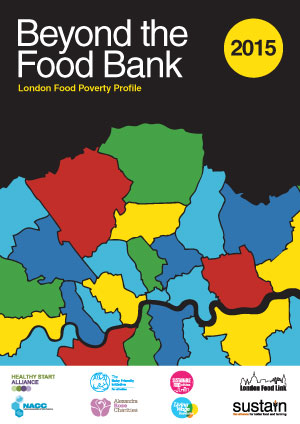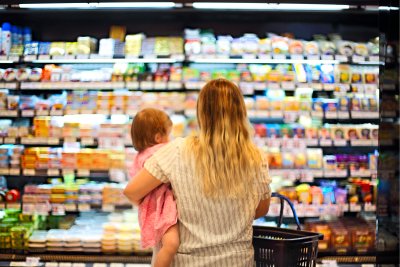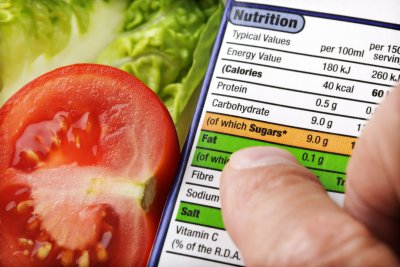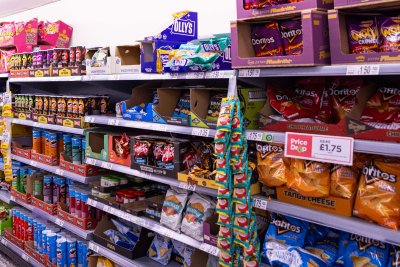 1 in 3 London boroughs have cut their meals on wheels
1 in 3 London boroughs have cut their meals on wheels- 220,000 London pupils from families living below the poverty line are not enrolled in Free School Meals – most of whom are not eligible.
- 64% of London boroughs do not guarantee employees a London Living Wage​
The new report from London Food Link [1], looks at support from infants through to old age, focusing on initiatives that help put more money in the pockets of those in need (healthy start vouchers, breastfeeding, living wage, free school meals, along with breakfast clubs and holiday meal provision), and those that help provide access to affordable, healthy food (improving physical access and supporting meals on wheels) [2].
Report author, Hannah Laurison commented, “Too much focus has been put on the role of food banks in tackling food poverty. Whilst it’s incredibly important that we support individuals in crisis, alleviating long term food poverty requires action to reduce inequality, preserve a strong safety net and build resilient communities where good food is available to all. This report shows what local authorities can do, and in some cases are already doing to address this”
The report shows that:
- Ten London boroughs no longer offer a meals on wheels service, which provides healthy meals for vulnerable and isolated older people at risk of malnutrition[3].
- Vital schemes like Healthy Start -- which provide vouchers for fruit and vegetables that increase young families’ food budgets by 14-25% [4] – are under-enrolled. More than 1 in 4 eligible London mothers and children are not receiving these vouchers [5].
- Some 1.5 million children nationally are currently disqualified from receiving because their parents receive tax credits to top up their low wage work [6]. There are an estimated 220,000 London pupils living below the poverty line who are not enrolled in Free School Meals. That means 18%, or one in five London pupils, are at risk of hunger during the school day [7].
- Over half a million children in London will struggle for food during school holidays [8].
Download Beyond the Food Bank.
For more information, please contact:
Hannah Laurison
hannah@sustainweb.org
02070650902
Notes
1. About the report: London Food Link is part of the UK charity Sustain: the alliance for better food and farming. The report is funded by Trust for London. Working with local authorities, researchers and civil society organisations, we identified the six key areas for local council action. We gratefully acknowledge the efforts of London boroughs in taking the time to respond to the questionnaire providing much of the data for this report, and also to the following organisations that provided expertise: Healthy Start Alliance, Unicef Baby Friendly Initiative, Living Wage Foundation, National Association of Care Catering, Alexandra Rose Charities and Sustainable Food Cities.
2. The six actions that the report focuses on to reduce long term food poverty are:
- Improving the uptake of Healthy Start Vouchers
- Supporting breastfeeding through the Baby Friendly Initiative
- Providing free meals 365 days a year for children living in poverty
- Adopting the London Living Wage
- Improving physical access to good food
- Reducing risk of food poverty and malnutrition risk
3. Meals on Wheels figures provided by Local authority survey responses and data from National Association of Care Catering (NACC).
4. Average grocery expenditure is £68.10 for food and non-alcoholic drinks for two adult households with two children in lowest twenty per cent income group. For a lone parent with children in lowest twenty per cent income group, the average grocery expenditure is £40.60 (source). A family with a baby under one and toddler would receive 3 Healthy Start vouchers, worth £9.30 voucher. A lone parent with a baby under one and toddler would receive 3 Healthy Start vouchers, worth £9.30. (Source)
5. Source: Department of Health data.
6. Source: House of Commons Library, via Frank Fields, MP.
7. There are 1,223,434 school-aged children in London (source). 37% of London children live below the poverty line, or an estimated 452,671 school-aged children. (source).
There are 232,114 London children eligible for and claiming free school meals. (source). 452,671-232,114=220,557
8. Source: Child Poverty Action Group, available here.
Food Poverty: Championing people-powered projects that tackle the root causes of food poverty.








